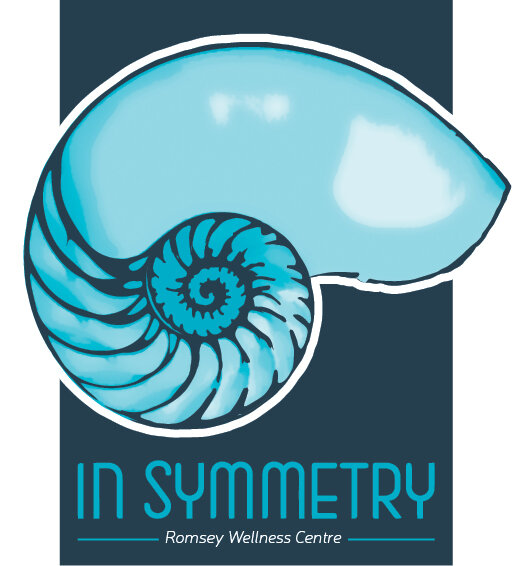Sleep Hygiene: Strategies for a better night’s sleep
Tired all the time? Do you have trouble getting to sleep? Staying asleep?
Avoid going to bed?
Written by Nicolette Truscott
Sleep is an important time for the body to rest and repair. It is essential for normal day to day mental and physical function. The effects of poor sleep can be wide reaching and greatly impact on our day to day quality of life. According to the Sleep Health Foundation of Australia’s 2016 survey, 33-45% of adults are reporting having inadequate sleep in either duration or quality [1]. Aside from feeling tired, grumpy and far from the best version of ourselves, sleep deprivation has been linked to many health concerns including coronary heart disease, depression and mortality risks [1].
Sleep-wake cycle: circadian rhythm and the Yin-Yang cycle
The body’s sleep-wake cycle is dictated by cyclic hormonal changes. Two important hormones in the sleep-wake cycle are Melatonin and Cortisol. Melatonin levels start to rise in the early evening in response to the decrease in light and assists with the feeling of sleepiness. Cortisol acts in the opposite way, slowly building during the night to help awaken us in the morning. It is also an important hormone in fight and flight responses and is released in times of stress.
In Chinese Medicine, this cycle is described in a different way in terms of ‘Yin’ and ‘Yang’. Yin and Yang are relative terms used in Chinese philosophy to describe interconnected but opposing forces that cannot exist without the other. ‘Yin’ describes the peaceful, cool, contracting and calm aspects whereas ‘Yang’ relates to more intense, warm, expanding and dynamic side of nature and the human body. In the evening, the ‘Yang’ or active phase of day transitions to the ‘Yin’ restful period of night. The balance and smooth transitions of Yin and Yang is seen as imperative to wellbeing in Chinese Medicine theory.
What can I do to improve my sleep quality?
As we approach nightfall, there are some small but profound changes we can make to assist us in a good night rest:
Create a bedtime routine. This helps the body recognise when it is time to wind down. Having regular sleep and wake times can help maintain the circadian rhythm to get better sleep. Preferably getting to bed by 10pm
Lighting: Having the bedroom as dark as possible will help with a deeper, less disturbed sleep. It is also important to have adequate natural light in the morning and limit artificial lights in the evening (at least 1 hour before bed) to trigger the release of the appropriate hormones at the appropriate times. This includes light emitted from devices such as phones, laptops or TVs, as the bright blue light from these devices inhibits the release of melatonin making it more difficult to fall asleep. There are many apps and software available now (such as the free software f.lux for laptops available at: https://justgetflux.com/ ) which changes the light emitted from these devices to a yellow light, which is less impactful.
Avoid eating too late or too much: digestion is an active Yang activity which can distract your body from the task of sleep.
Avoid stimulants close to bedtime: such as caffeine and chocolate at least 4 hours before bed. Alcohol intake, especially at night, has also been shown to effect sleep so limit or avoid if possible.
Relaxation techniques: such as deep abdominal breathing, yin yoga or mindfulness meditation can be beneficial to decrease stress and cortisol levels and get your body and mind in the right state for sleep. To learn mindfulness meditation there are many highly regarded apps including Headspace (https://www.headspace.com/headspace-meditation-app ), Calm (https://www.calm.com/) and Waking up (https://wakingup.com/ ).
Temperature: cooler temperatures assist the body transition to sleep, don’t overheat your bedroom above 18 degrees Celsius. A warm, relaxing shower, bath or foot soak can be particularly helpful, as the drop of body temperature afterwards can help the body change from the Yang to the Yin phase and assist with feeling sleepy.
Keep the bedroom for sleep and related activities ONLY: Having the mental association that bed = sleep can help the brain switch off quicker. Keep the bed for the ‘chill’, not the Netflix or Candy Crush :0)
Don’t bring your day to bed: If you find that your thoughts are circling and keeping you awake, it can be helpful to keep a pad and pen next to the bed to write them down and address them in the morning.
Wishing you all a peaceful sleep xx
Sleep and insomnia can be very overwhelming. For personalised support for sleep issues utilising Traditional Chinese Medicine and acupuncture please contact the clinic for an appointment.
References:[1] Adams RJ, Appleton SL, Taylor AW, Gill TK, Lang C, McEvoy RD et al. Sleep health of Australian adults in 2016: results of the 2016 Sleep Health Foundation national survey. Sleep Health 2017 Feb; 3(1): 35-42. Available at doi: 10.1016/j.sleh.2016.11.005.



